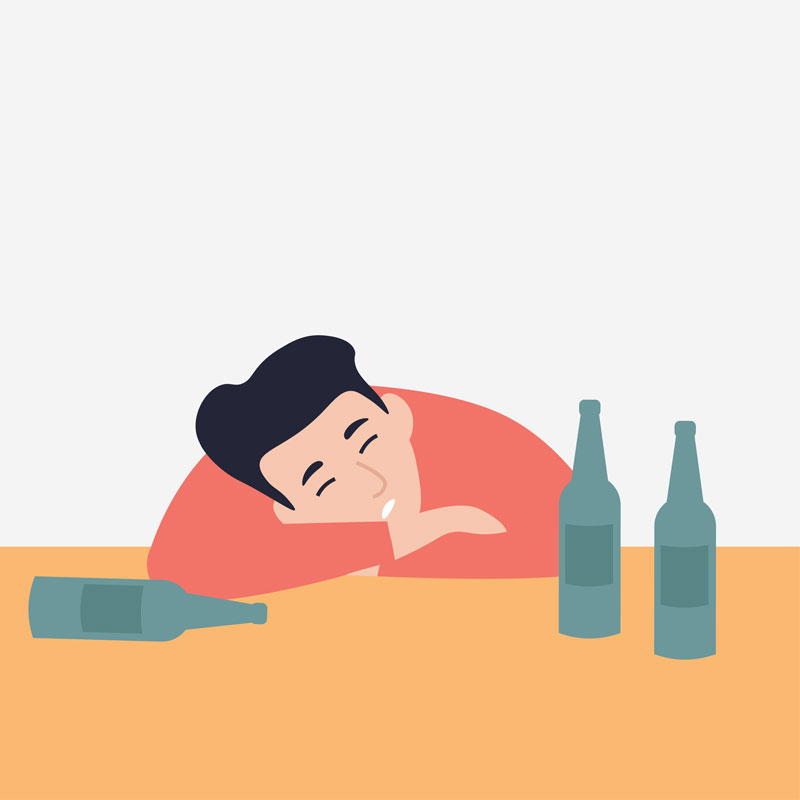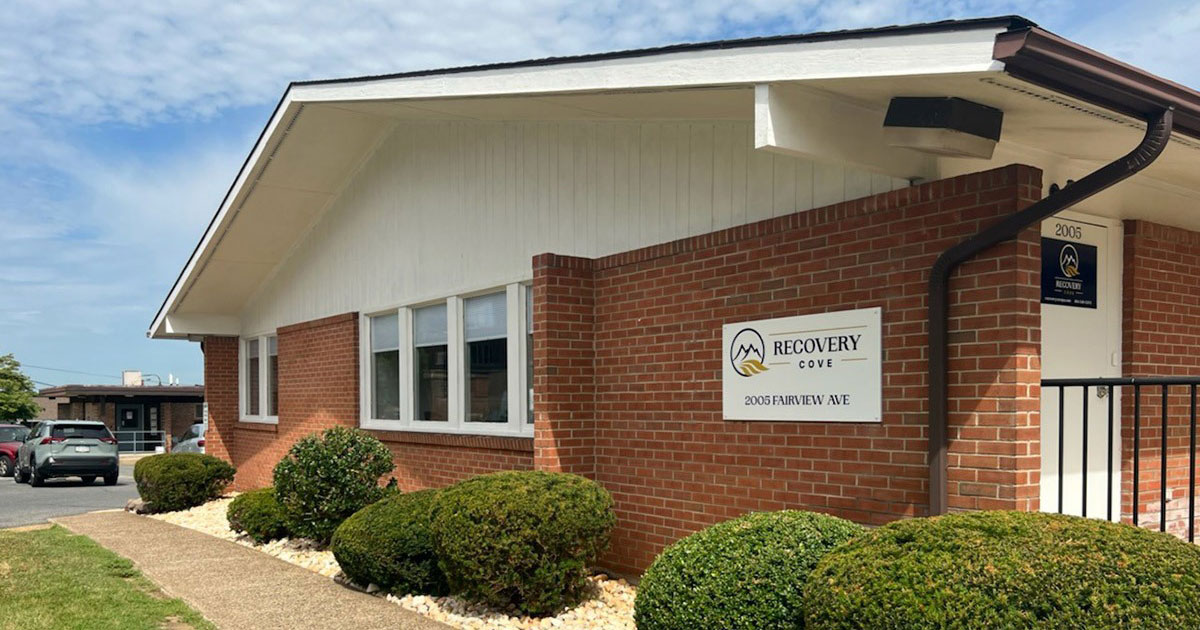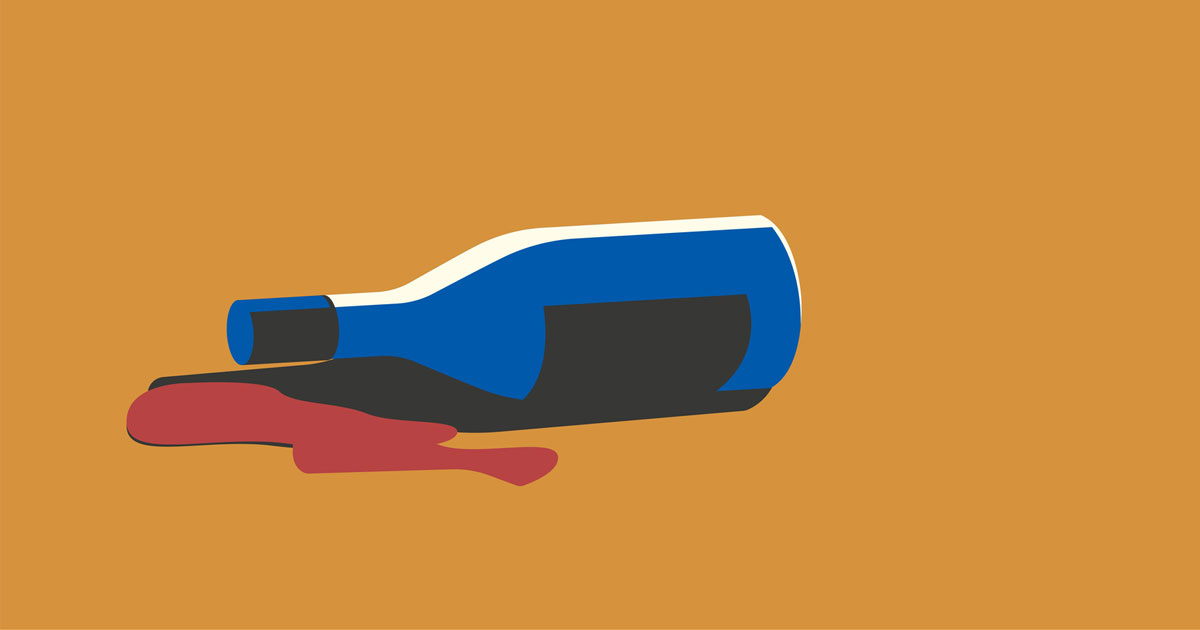Alcohol use disorder, also known as AUD or alcoholism, is a disorder that’s much more common than you may think. For example, in Pennsylvania alone, deaths linked to alcohol average about 5,700 a year. While alcoholism can be prevented with the right precautions and treated by trained professionals, it’s important not to take this disorder lightly. The ugly truth is that it is a deadly disease Americans are more susceptible to than ever before.
In fact, there are quite a few truths about alcohol use disorder that are important to learn, including the actions and behaviors that serve as signs of alcohol addiction, as well as the statistics surrounding alcohol rehab centers and treatment methods. Awareness about AUD can aid in prevention, destigmatize treatment, and help our society build a healthier and happier future.
What Is Alcohol Use Disorder?
While overuse of alcohol, or "problem drinking," is certainly a dangerous behavior, there are specific qualifications that must be met for a diagnosis of alcohol use disorder. People with AUD demonstrate at least two of the 11 possible symptoms outlined by the DSM-IV. As a result, AUD is not a one-size-fits-all condition but must also align with some specific requirements.
Identifying Symptoms
If you’re concerned that you or a loved one may be suffering from alcohol use disorder, it’s important to learn the signs of AUD.
While some signs can be indicative of other disorders and a diagnosis, symptoms of alcohol use disorder include the following:
- Drinking alcohol more often or for longer periods of time than intended
- The inability to reduce or stop drinking
- Spending a lot of time drinking or experiencing negative effects, such as illness
- Wanting to drink so badly it’s hard to think of doing anything else
- Drinking or feeling ill from drinking to the point where it impacts work, school, or family responsibilities
- Continuing to drink even if it causes problems with relationships
- Giving up important or pleasurable activities in order to drink
- Participating in unsafe activities after drinking, such as driving, swimming, or operating heavy machinery
- Continuing drinking, even if it adds to health problems, leads to depression or anxiety, or results in blackout
- Drinking more than normal to obtain the expected effect
- Withdrawal symptoms while not drinking, such as restlessness, nausea, or seizure
How Alcohol Addictions Develop
Another difficult truth of alcohol use disorder is that there are many factors that may lead to the development of an alcohol use disorder. Many of them stem from pre-existing mental health conditions or the presence of stressful and triggering situations.
Here are a few of the most common precursors to alcohol use disorder.
Mental Health Disorders
Alcohol use disorders are often comorbid with other mental health disorders, which means that they’re often found in tandem with other conditions. One such mental health disorder is depression, which is potentially linked with higher rates of alcohol use disorders.
Depression, anxiety, and post-traumatic stress disorder (PTSD), in particular, can be very difficult to handle on their own. Unfortunately, many people turn to alcohol in an attempt to numb their symptoms temporarily. Because the pre-existing condition still remains, although it is temporarily masked by intoxication, alcohol won’t actually help to solve the issue.
When intoxication wears off, the issue will come back, often more severe than before. In turn, the person may drink in order to cope. Eventually, as tolerance develops, the person must drink more and more to achieve the desired numbing effect. Heavy alcohol use over time can worsen mental health issues, change chemical messenger pathways in the brain, and cause severe physical symptoms. Personality Disorders.
Personality Disorders
A specific type of mental health disorder often linked to alcohol use are personality disorders. This category, which includes conditions such as bipolar disorder, antisocial personality disorder, and borderline personality disorder, can be an important factor in the development of alcohol use disorder. Addressing this disorder is essential to properly treating alcohol use disorder.
This pattern exists for a few reasons. Personality disorders can have a similar negative impact on a person’s life as mental health disorders, and the individuals who experience them are often searching for relief via an easily utilized coping mechanism. In addition, many personality disorders can result in impulsivity, neuroticism, and altered decision-making, all of which may be factors in the decision to consume alcohol.
Social Pressure
One factor that cannot be ignored in the development of alcohol use disorder is the existence of peer pressure. For teenagers and young adults especially, the need to fit in with an in-group can lead to poor decision-making. This, in turn, often leads to dangerous activities like binge drinking or drinking in secret.
Negative Habit Forming
Whether it’s to handle a stressful situation, the result of continuous peer pressure, or even just for personal enjoyment, alcohol use disorder is especially concerning when the body becomes accustomed to functioning in the presence of alcohol. Worse, severe effects can occur when the brain and body can no longer function correctly without it.

The Physical and Psychological Effects of Alcohol Use Disorder
A particularly difficult truth about alcohol use disorder is that its consequences are far more serious than the need to drink more to achieve the same effects and extend beyond their interference with regular life activities. Alcohol use disorder is dangerous, both physically and psychologically. There are a variety of short-term and long-term effects associated with the disorder.
Short-Term
The most obvious consequence of alcohol use disorder is a consistent craving for alcohol. This need is not just psychological; since alcohol changes the pathways of the brain, interfering with chemical messengers and disrupting the reward system, the drive for alcohol is both mental and physical.
Since the brain and body are now accustomed to functioning in the presence of alcohol, and neurochemicals have become unbalanced, ceasing the use of alcohol can have very serious mental and physical effects. This is especially apparent as the body begins to experience withdrawal.
Without alcohol, people with AUD may experience the following:
- Insomnia
- Confusion
- Hallucinations
- Anxiety
- Depression
- Increased heart rate
- Nausea and vomiting
- Shakiness
- Lethargy
- Seizures
Continuous withdrawal-relapse cycles can lead to even bigger problems down the road. For example, a lack of sleep can result in worsened anxiety, while vomiting too often can lead to dehydration, tooth loss, and malnutrition. These are just a few examples of serious health problems that can occur as a result of short-term withdrawal symptoms.
Long-Term
Alcohol is a brain and body toxin, and its effects worsen with prolonged, heavy use. For example, a glass of wine or two with dinner consumed by someone without AUD will likely not cause short-term effects, and occasional alcohol consumption may not have an effect on bodily systems right away. However, as with all toxins, the long-term effects of continuous intake grow more and more severe.
Just a few of the possible impacts a long-term alcohol disorder can have include:
- Damage to the liver, kidneys, and other organs.
- Weight gain due to a slowed metabolism.
- Malnutrition issues, especially as consumption and illness interfere with nutrition
- The development of comorbid disorders such as depression and anxiety, if none existed already
The Truth About Alcohol Rehab

If you’ve identified some of the above warning signs and believe that you or your loved one needs help overcoming alcohol use disorder, an alcohol rehab center can help. Before considering help, it’s important to understand that while it cannot be cured, alcoholism can be treated. A quality alcohol use disorder treatment center can employ various methods to not only help cease the use of alcohol but provide counseling, therapy, and other tools to prevent relapse and ensure long-term recovery.
Proper alcohol rehabilitation will consider what the patient most needs, not just in terms of handling the alcohol use itself but also in terms of dealing with the underlying causes of the disorder. The best treatment plans are personalized for the individual while not isolating them from support groups.
A few common and effective treatment options include:
Cognitive Behavioral Therapy
Cognitive behavioral therapy, also known as CBT, is a type of therapy that focuses on identifying negative thoughts that lead to behaviors like drinking. Negative thoughts are examined and reframed so they lead to healthier behaviors. CBT can provide patients with better coping mechanisms and a deeper sense of personal awareness.
Psychotherapy
Also known as “talk therapy,” psychotherapy is what many people think of when they think of therapy in general. Psychotherapy allows a patient to talk through their problems with a trained therapist they can trust. Together, the therapist and patient can organize better ways to think about or deal with issues.
Group Therapy
One of the more important parts of recovery from a substance use disorder is a strong and reliable support group. This is why group therapy is so important for addressing alcohol use disorder, even if a patient is already going through individualized therapy. Being part of a group can teach someone that they aren’t alone with their problems, help them develop better listening skills, and provide support of their own.
Medication-Assisted Treatment
Also known as MAT, medication-assisted treatment is very important for helping patients handle withdrawal symptoms and cravings so they can focus on the work of recovery. A proper medication-assisted treatment program uses FDA-approved medications to attenuate withdrawals and provides the patient with a range of other therapies to prevent a relapse from occurring.
Outpatient Alcohol Rehab Services
Outpatient services are designed to allow a patient to live their normal life outside of a rehabilitation center while still having access to the help they need on a daily basis. The goal of outpatient services is to help a patient learn to cope with everyday, stressful situations they may encounter after leaving treatment. Outpatient rehab can provide the same services as inpatient programs on a part-time basis.
Relapse Prevention Planning
Forming a relapse prevention plan is a valuable way for people with a substance use disorder to face the future with confidence and support. These plans help individuals account for the possibility of encountering a trigger, outline tools effective in responding to the trigger without substance use, and designate one or more supportive people to contact if necessary. With a relapse prevention plan in place, relapses can be avoided and better addressed if they do occur.
How to Deal With Alcohol Use Disorder Treatment
If you have a loved one undergoing treatment for AUD, the most important way you can help them is by being supportive. Just because they are in treatment does not mean the struggle with alcohol addiction has ended. In fact, seeking treatment is only the beginning – the work of recovery and maintaining recovery after treatment are vital to your loved one’s future.
Being a supportive friend, family member, or partner can take many different forms, depending on your loved one’s needs.
Here are a few things you can do to help:
- Drive your friend to or from therapy or outpatient treatment as needed
- Get educated about alcohol use disorder, particularly so you can recognize the signs of relapse before they occur
- Be encouraging, reminding them to keep attending treatment
- Listen to your friend when they’re upset
- Be understanding, especially if they express a need to stay away from triggering places or people
- Avoid triggers in your relationship with them
- Offer to begin a new hobby or start a new healthy lifestyle with them
- Set boundaries so they know what you are willing to accept in your relationship with them
- Offer to help them seek professional interventions if you believe a relapse is imminent once treatment has concluded
Contact Recovery Cove for Alcohol Addiction Help in PA

If you believe you are experiencing alcohol use disorder, the best thing you can do is to reach out to a professional at a rehab center that addresses alcohol use disorder. There are many uncomfortable truths surrounding alcohol use disorder, but fortunately, there is hope.
With research-backed treatments personalized to your needs, Recovery Cove is proud to offer healing and recovery to those experiencing alcohol use disorder. Contact us today to learn more about personalized addiction treatment in Pennsylvania.
References:
- https://iv.iiarjournals.org/content/24/5/761.short
- https://drugabusestatistics.org/alcohol-abuse-statistics/
- https://www.ncbi.nlm.nih.gov/pmc/articles/PMC3959903/
- https://www.tandfonline.com/doi/abs/10.3109/10826084.2013.765479
- https://www.sciencedirect.com/science/article/abs/pii/S0002934305000082
- https://americanaddictioncenters.org/alcoholism-treatment/symptoms-and-signs
- https://www.niaaa.nih.gov/publications/brochures-and-fact-sheets/alcohol-use-disorder-comparison-between-dsm

Clinical Director
Christine Todd is a Licensed Professional Counselor and an Advanced Certified Drug and Alcohol Counselor who enjoys working directly with a population that struggles with addiction and mental health disorders. Christine brings many years of clinical experience to the team at Recovery Cove, where she is currently the Clinical Director. In her role, she oversees the clinical department as a leader, educator and mentor, designing programming and protocols for a diverse client population.






